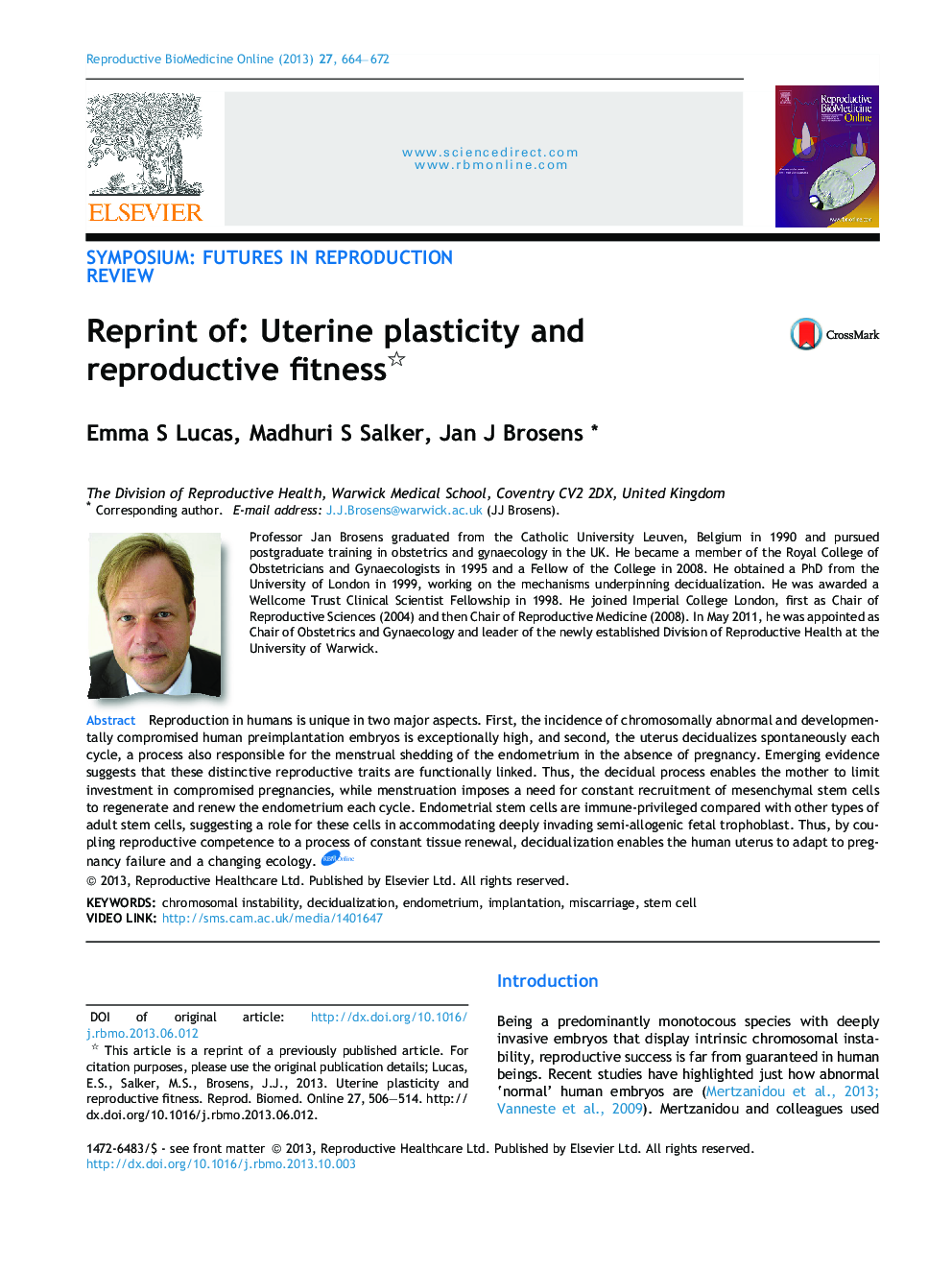| Article ID | Journal | Published Year | Pages | File Type |
|---|---|---|---|---|
| 3970221 | Reproductive BioMedicine Online | 2013 | 9 Pages |
Reproduction in humans is unique in two major aspects. First, the incidence of chromosomally abnormal and developmentally compromised human preimplantation embryos is exceptionally high, and second, the uterus decidualizes spontaneously each cycle, a process also responsible for the menstrual shedding of the endometrium in the absence of pregnancy. Emerging evidence suggests that these distinctive reproductive traits are functionally linked. Thus, the decidual process enables the mother to limit investment in compromised pregnancies, while menstruation imposes a need for constant recruitment of mesenchymal stem cells to regenerate and renew the endometrium each cycle. Endometrial stem cells are immune-privileged compared with other types of adult stem cells, suggesting a role for these cells in accommodating deeply invading semi-allogenic fetal trophoblast. Thus, by coupling reproductive competence to a process of constant tissue renewal, decidualization enables the human uterus to adapt to pregnancy failure and a changing ecology.By imposing the need for cyclic renewal of the endometrium, spontaneous decidualization followed by menstruation bestows unique functions on the human endometrium that are essential for reproductive success.VIDEO LINK:http://sms.cam.ac.uk/media/1401647
